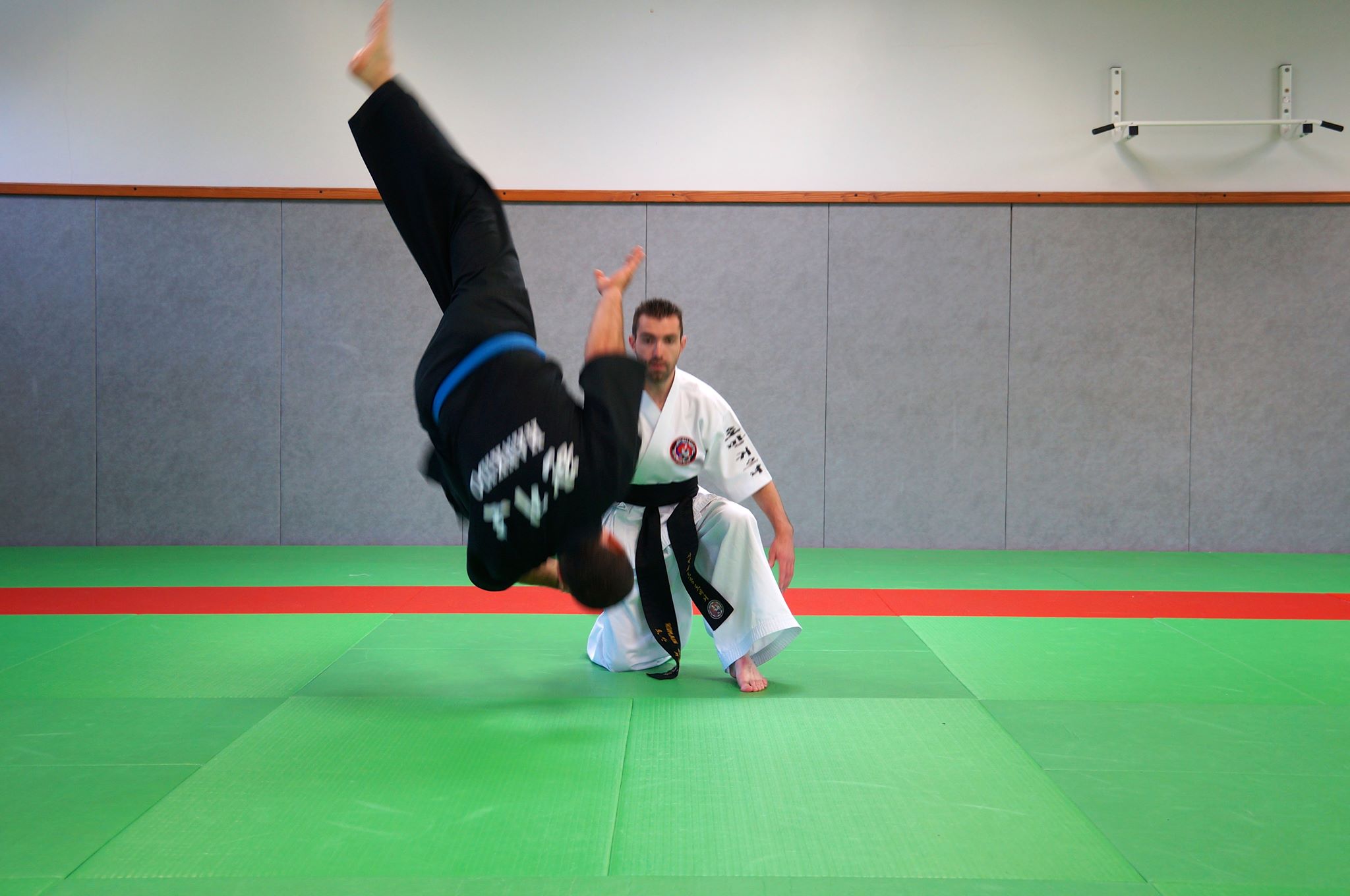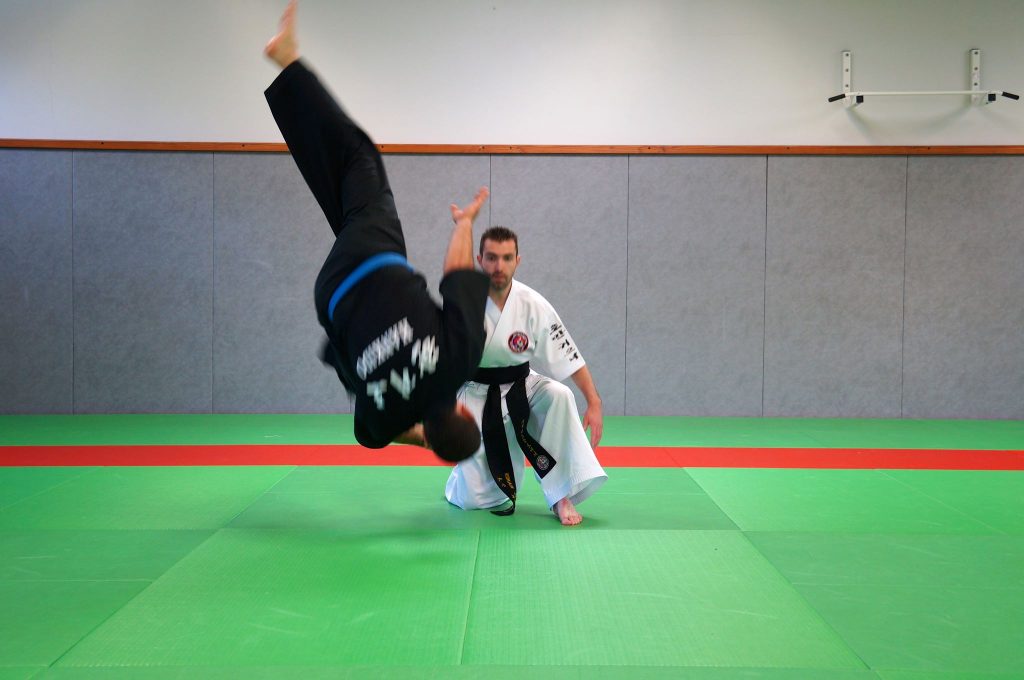Romain has been practicing martial arts for more than 15 years. In 2005 he discovered Hapkido and Hankido that he teaches today in Nort sur Erdre (France). Despite a genetic disease that affects his sight, Romain made an early choice to go for a subtle practice, based on sensation, which he completed by learning manual therapy via Reiki and Shiatsu.
Romain came to Hong Kong in 2013 to share his great knowledge with us and gladly accepted another interview on his practice on this website last year.
1. Do you have any morning routine? (It doesn’t have to be related to martial arts)
To be honest I do not have a particular ritual. However, in Hankido, we have a part called Hwansang Do Beop, which means the path to the visualization of techniques. This part is composed of 24 respiratory forms, 12 that represent the one who does (techniques of the sky) and the other 12 the one who receives (technique of the earth). It’s quite similar to qi gong. By practicing these forms I was able to better understand the logic of the body in the movement and thus improve my practice with a partner.
Besides this, I regularly practice Makko Ho which are stretching exercises based on the meridians of the body. These are exercises that I discovered during my shiatsu training. Well performed in a relaxed state, these exercises can be very effective. Personally, I am someone who analyzes a lot, what I like in martial arts is this permanent search.
2. If you only had 10 min to train, what would you do?
I think you have to stay simple and set a goal. If we have a technique or a gesture that seems difficult to us, we must focus on it by working slowly. Your brain will analyze better what you want to do. The most important thing if you want to be effective is not to scatter.
3. What is the best investment you’ve made in yourself? In others?
I would say it is when I opened my Dojang at Nort-Sur-Erdre as it forced me to question myself. What did I really want to teach? Being rather in reality-based or more focused on personal development. It took me a long time, I searched myself a lot and then during a seminar, I rediscovered Hankido with a teaching that suited me better. From there, I worked in this direction and that’s what made me grow martially.
As for the others, if I take the example of my students, the best reward for me is to see them grow in the martial art and outside. The most fun is with children.
4. In your opinion what are the biggest mistakes that people make when training? On the contrary, what do you think people get easily from the beginning?
It is very difficult to answer this question from a technical point of view because everyone has their own difficult and easy points. On the other hand, if we think more in the sense of personal development, I would say that it is often our beliefs that may be causing our blockages.
In itself it is not a problem to make mistakes, I would even say that we must do some because it is thanks to them that we grow.
5. Has any failure you had in the past help you get better at what you do? Do you have a favourite failure you could share?
Apart from my 2nd Dan examination that was laborious because the conditions were not the best, I did not encounter any great difficulty. Actually yes I did (laughs), because of you. After your first visit (to my dojang in Nort sur Erdre), I spent a year where my practice was messy because I had a lot of information to digest and integrate. But good in these moments, we must let go, be patient and do our best.
6. When you feel you are reaching some sort of ceiling/stagnation period in your practice, how do you go through it?
Very often a period of stagnation means that our practice is going to evolve and that we must give the body some time to digest the new information. For example, sometimes when you come back from vacation, you feel like you have progressed although you have not trained. On the other hand, if this stagnation period lasts for too long, it can be because one has reached his technical limits.
How to get through that? Being aware of having reached a ceiling, I would say we’re already in the good direction. At that time, I think we need to look at other practices, or other ways of teaching. This can help to go through this stage.
7. Would you have any advice for your younger self?
Remain curious, always take pleasure in practicing, and more than anything preserve yourself with time.

